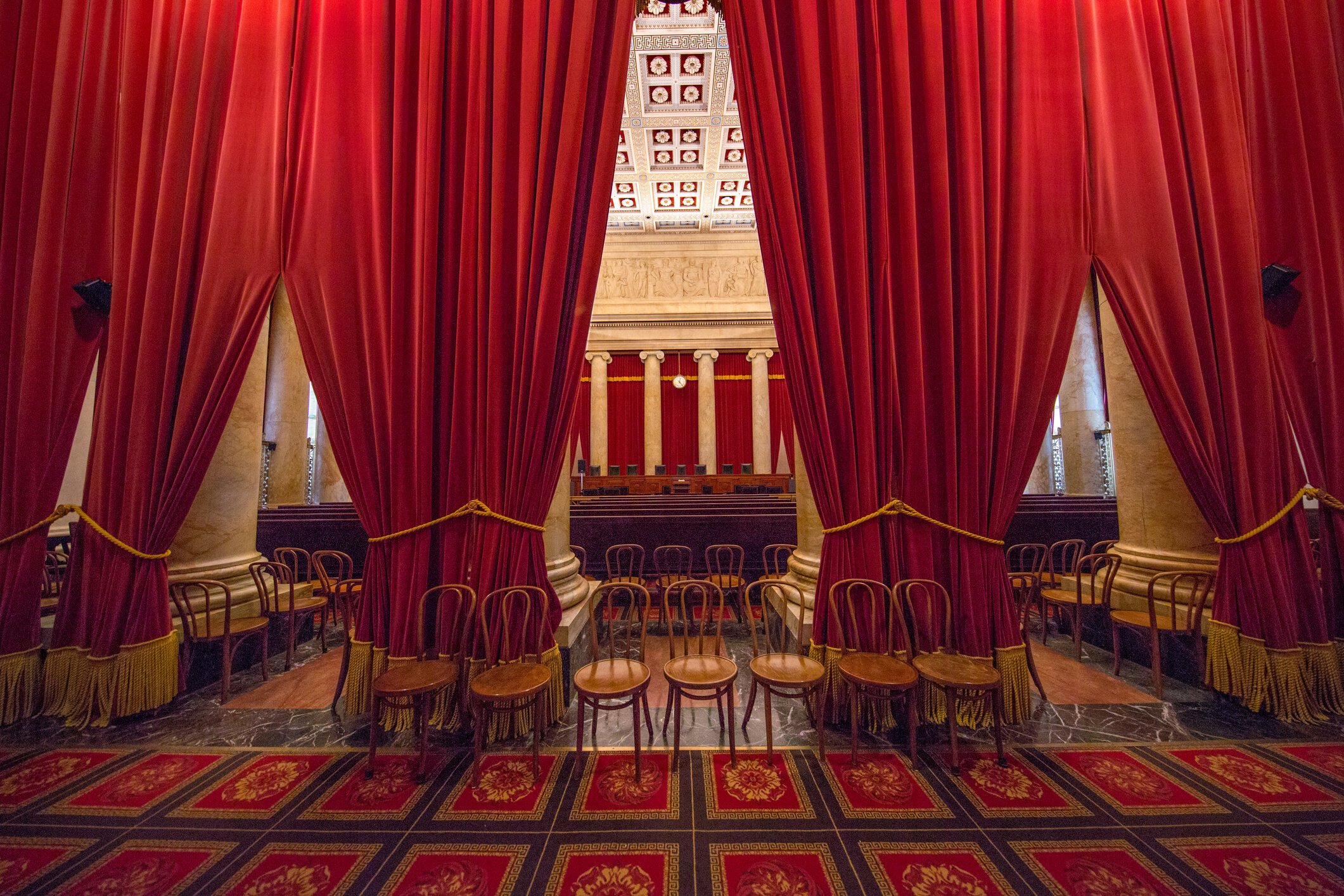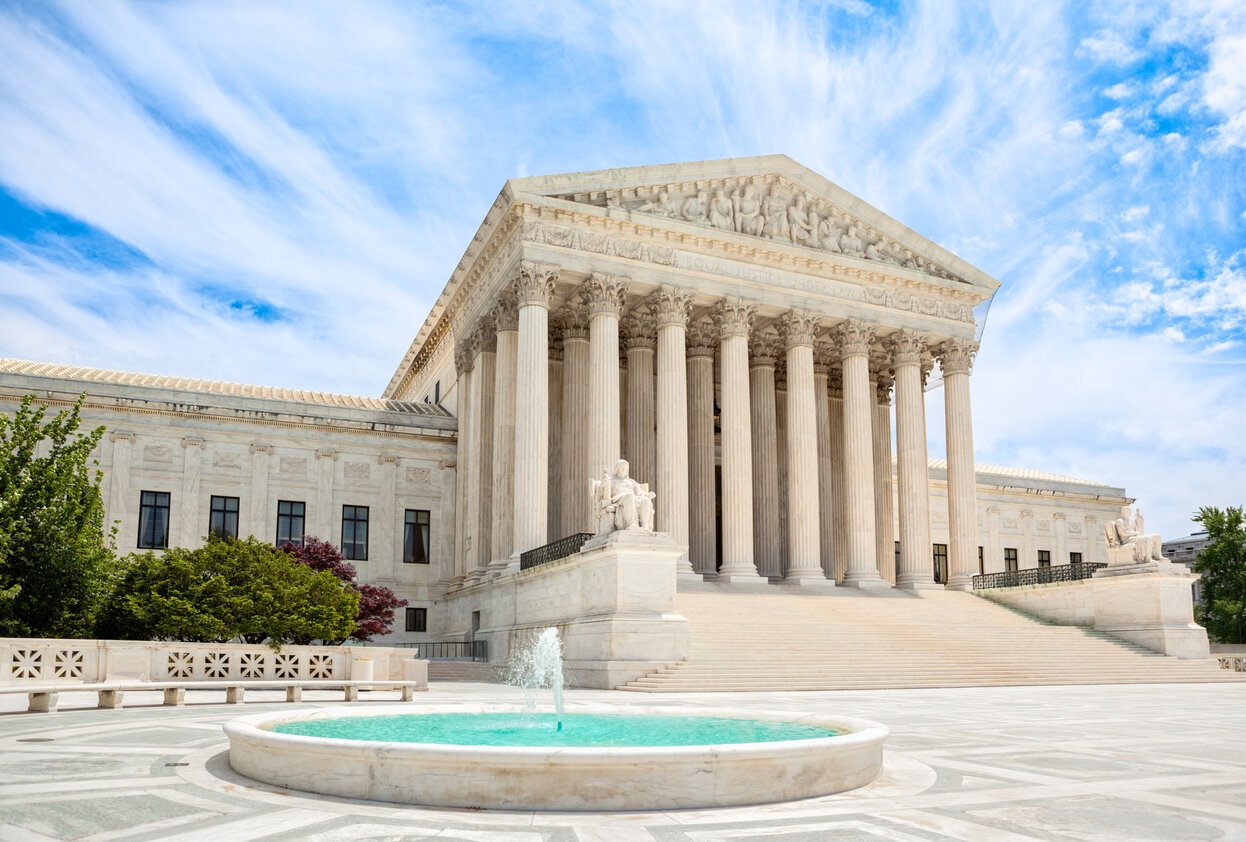Federal Circuit: Preselection Coupled With Service Discrimination Violates USERRA
The United States Court of Appeals for the Federal Circuit described the litigation of a case it adjudicated on May 14, 2021 as “the decade-long journey of a hard-working man who served his country honorably, only to face workplace discrimination on the basis of that service.” In its opinion, the Federal Circuit held that the Merit Systems Protection Board (MSPB) erred in finding that the candidate’s nonselection for a position at the Department of the Navy would have occurred “regardless of his prior military service.”
Sixth Circuit: Continuous Drug Dealing Operations Alone Justified Warrant to Search Residence
In 2007, the Louisville office of the Drug Enforcement Administration (DEA) conducted an investigation which led to the seizure of drugs and money and the convictions of Byron Mayes and brothers Julio and Alfredo Rivas-Lopez. Flash forward to 2016, and all three drug dealers were out of prison.
Supreme Court to Decide on Gun Owners’ Rights to Carry Concealed Guns Outside
This week, the Supreme Court agreed to review whether the Second Amendment protects the right to carry a gun outside of the home without a license. This marks the first time in over a decade that the Court will weigh in on the Second Amendment.
Seventh Circuit: Independent Grounds Needed to Prolong a Pretextual Stop
On June 25, 2018, Illinois State Trooper Clayton Chapman was on highway patrol duties and received a message from Deputy Sheriff Derek Suttles about a hatchback with a California license plate on Interstate 72. Deputy Suttles reported to Trooper Chapman that the vehicle was going approximately 20 mph under the speed limit, and found it suspicious.
Officer Who Used Suspect as ‘Human Shield’ Entitled to Qualified Immunity, Seventh Circuit Holds
An officer who held his gun to a suspect’s head, while using the suspect as a “human shield,” was entitled to qualified immunity because the officer’s conduct did not violate clearly established law, the Seventh Circuit recently held.
Supreme Court Considering Whether “Community Caretaking” Allows Warrantless Home Entry
The Supreme Court last week heard oral argument on whether the “community caretaking” exception allows law enforcement to enter a home for the purposes of the occupant’s health and safety.
Supreme Court Hears Oral Argument in Fifth Amendment Suit Challenging Union Organization
On March 22, 2021, the Supreme Court of the United States heard oral argument in Cedar Point Nursery v. Hassid.
Federal Circuit: Agencies Must Prove Pre-PIP Unacceptable Performance
Before a federal employee can be terminated for unacceptable performance, the employing agency must provide the employee with an opportunity to demonstrate acceptable performance.
Eighth Circuit: Officers Denied Qualified Immunity after Search of Entire Domicile Not Justified under Community Caretaker Exception
In the middle of the night, a drunk man in his 30s took a taxi from St. Louis to Ballwin, Missouri, asked the taxi driver to stop on the street near the home of Jon Luer and his wife, Andrea Steinebach, and exited the taxi without paying his $65 fare. The driver reported the fare skipper to the police at 2:38 am, and officers arrived on the scene 2:45 am.
Dismissing FTCA Claims for Lack of Jurisdiction Can Bar Related Bivens Claims, Supreme Court Rules
When a district court addresses the merits of a Federal Tort Claims Act claim in its decision dismissing that claim for failing to legally state a claim, the FTCA bars the plaintiffs from bringing any Bivens claim on the same subject matter, the Supreme Court held today.
Penalties Mitigated in Arbitration, after an Agency Decision, Do Not Establish Disparate Treatment
McKenzie Holmes was a U.S. Postal Service (“USPS”) employee from 1989, until his removal in 2018. At the time of his removal, he worked as a city carrier at the Fort Dearborn Station in Chicago.
First Circuit: Warrant or Reasonable Suspicion Not Needed for Basic Border Searches of Electronic Devices
Plaintiffs, ten U.S. citizens and one lawful permanent resident, brought suit against the Secretary of the U.S. Department of Homeland Security (DHS) Kirstjen Nielsen, Acting Commissioner of the U.S. Customs and Border Protection (CBP) Kevin McAleenan, and Acting Director of U.S. Immigration and Customs Enforcement (ICE) Thomas Homan, alleging that certain CBP and ICE policies and practices violated their Fourth Amendment rights.
Accessing Secure Zoom Room Is Evidence of Conspiracy, Third Circuit Affirms
On-camera participation in a password-protected Zoom videoconference may be relied upon as evidence of a conspiracy, the Third Circuit recently held. In that same decision, the Court held Zoom user logs are “classic business records” that may be introduced into evidence.
Third Circuit: Federal Civilian Dual Status Technicians Not Covered under the Uniformed Services Exception to Reduced Social Security Benefits
Floyd Douglas Newton worked as a National Guard dual status technician from 1980 until 2013. A dual status military technician is a federal civilian position supporting the Selected Reserve or armed forces. Though civilians, dual status technicians are required to maintain National Guard membership, hold a particular military grade, and wear appropriate military uniform, among other requirements.
Eighth Circuit Refuses to Extend Bivens to False Arrest by Deputized Federal Officer
Muna Abdulkadir was a witness for the government in a federal sex-trafficking case. In that case, thirty individuals were charged and detained as suspected participants in a sex-trafficking scheme. Of the thirty individuals, only nine were tried, and all were acquitted.
Agents Exposed to Personal Liability Under Religious Freedom Restoration Act, Supreme Court Rules
Government officials may be sued in their personal capacity for alleged violations of the Religious Freedom Restoration Act of 1993 (RFRA), the Supreme Court held in the case of Tanzin v. Tanvir, issued last week.
Federal Circuit: No Waiver of Sayers Arguments in VA Removal Case
A VA police officer was removed by the Department of Veterans Affairs under the 2017 “accountability” law 38 U.S.C. § 714 that limited review of VA’s actions against general schedule employees. The removal was based on conduct occurring prior to the enactment of the law. The employee appealed to the MSPB, and the MSPB affirmed the removal. On December 7, 2020, the United States Court of Appeals for the Federal Circuit vacated the MSPB’s decision, and remanded the case to the MSPB with instructions to remand the case further back to the agency.
OSC and CIGIE Reach Agreements for Investigation Referrals
On November 3, 2020, the United States Office of Special Counsel (OSC) announced that it had reached two agreements with the Council of the Inspectors General on Integrity and Efficiency (CIGIE). A statement by OSC claimed that the “core goals of the agreements are to protect the independence of the respective Inspectors General and provide better outcomes to whistleblowers who report allegations of wrongdoing by OIGs.” The agreements are “the result of a years-long effort to clarify standards of procedure for such disclosures.”
Fifth Circuit: No Fourth Amendment Standing in Another Person’s Cell Site Location Information
While conducting a narcotics investigation, the Monroe Police Department learned from drug dealers and cooperating witnesses that Matthew Beaudion and his girlfriend, Jessica Davis, were distributing drugs. Officers obtained Davis’s phone number from one witness. The witness also told the officers that Beaudion and Davis planned to drive from Houston to Monroe with four pounds of meth.
MSPB Must Determine Jurisdiction Over IRA Claims On Face Of Complainant’s Allegations
The MSPB cannot consider an agency’s interpretation or presentation of evidence to decide whether an individual-right-of-action presents a non-frivolous allegation of whistleblower reprisal, the Federal Circuit clarified in a recent holding.





















